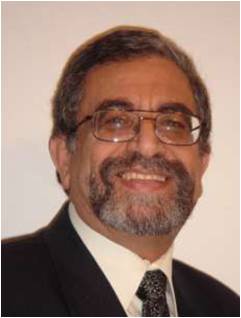Project Management Tools and Techniques
Dr. Sami Fahmy, PhD
(2 days), TBA
Course Objective:
This two-day workshop introduces the participants to the five steps project management approach; define, plan, execute, control, and close. Through the instructor’s presentation, exercises, and group presentations, participants will practice the use of many project management tools and techniques.
The workshop is structured to provide participants with an excellent opportunity to immediately apply what they have learned to real-life projects. Participants are also expected to enrich the workshop with their participation by bringing in their own experiences, questions, comments, and discussion about how they will apply their newly acquired Project Management skills.
Fees: $1650 + (5% GST)

New payment method is available: E-Transfer to accounting@petromgt.com
In the note to the payment enter the name of the course and personal information.
Download Course Description (PDF)
This is an introductory workshop to project management tools and techniques. It presents an excellent practice and learning opportunity for new and intermediate Project Managers and project team members. The workshop is also intended for anyone who wishes to learn more about project management. Participants will learn and experience first hand, many of the tools that will help them plan, execute, and control any project.

Dr. Sami Fahmy is the president of Performance Excellence Institute, a training and consulting firm specialized in supporting organizations through providing project management and risk management expertise and training. He is a Global Registered Educational Provider (R.E.P). Dr. Fahmy is a Professional Engineer, A Project Management Professional (PMP), and Risk Management Professional (RPM) He is currently teaching project management, risk management, and communication management courses at the University of Alberta.
Dr. Fahmy is an International speaker and trainer. He has more than 40 years of hands-on experience covering a wide range of project management situations. Dr. Fahmy’s expertise covers a wide range of topics including: project management, risk management, quality management, problem solving, decision-making, and contract administration and communication skills.
Dr. Fahmy has a unique interactive approach for delivering PM workshops and presentation. His depth of practical experience and enthusiasm makes all his presentations a very informative, interesting, entertaining learning experience.
Learning Objectives
By the end of the workshop, participants will be able to create a detailed and integrated plan for their projects, complete with project execution and control techniques. They will also master several communication tools that will allow them to build project teams and communicate with project team members effectively. Participants will learn how to:
- Write a project charter
- Write a project scope statement;
- Optimize the triple project constraint;
- Solve issues related to scope changes
- Create a four-level work breakdown structure:
- Set quality standards and a quality control plan;
- Develop a procurement plan;
- Carry out a stakeholder’s analysis;
- Develop a risk management plan, with contingency allowances and mitigation plans for project risks;
- Estimate project costs;
- Create a realistic and achievable schedule;
- Evaluate critical contract administration issues and take corrective actions;
- Develop a communication plan; and
- Manage stakeholders’ expectations and relationships
Delivery approach and Methodology
Instructor will walk the participants through a real life project as an example to guide the participants in applying the tools to their own projects. Each group (total of 4 will be assigned their own special project. The groups will get the opportunity to practice and apply all project processes explained by the instructor.
Project Management Tool Box
Participants will take home a PM toolbox. The toolbox is a collection of check lists, forms, and schedules that will enable them to plan and execute any project regardless of its type, size or complexity.
Project Management Tools and Techniques
Day One
The following topics will be covered in the first day:
An Introduction to Project management
- What is a project?
- What is project management?
- Why do projects fail?
- Why do projects succeed?
- Project environment and how it impacts on people and processes;
- Project life cycle and,
- Project management life cycle.
- Exercises
Develop Project charter
- Clearly identify project deliverables;
- List project assumptions and constraints;
- Identify project “must haves” and ‘nice to have”;
- Identify critical manpower requirements; and,
- Gain approval from key stakeholders.
- Application/exercises
Define The Project
- Agree on clear project goals and objectives;
- Define key project deliverables;
- Identify assumptions and constraints;
- Write a project scope statement and identify project success criteria; and,
- Inform and involve stakeholders in order to gain their buy-in.
CONFIRM PROJECT SCOPE
- Identify the deliverables, what are you trying to accomplish?
- Develop a work breakdown structure.
DECIDE ON PROJECT QUALITY STANDARD
- Decide on a quality standard for the project deliverables.
Project Management Tools and Techniques
Day Two
The second day will focus on developing the project implementation plan:
DEVELOP A RESOURCE PLAN
- Decide on who will do what; and
- Produce an organization chart and staff management plan.
DEVELOP A COMMUNICATION MANAGEMENT PLAN
- Identify project stakeholders and conduct a stakeholders’ analysis; and
- Decide on who are the key stakeholders.
DECIDE ON A PROCUREMENT PLAN
- Conduct make or buy analysis; and
- Decide on how you will administer various contracts.
DEVELOP A REALISTIC AND ACHIEVABLE PROJECT SCHEDULE
- Use WBS to produce a project network; and
- Produce a Bar Chart and confirm completion date.
DEVELOP A RISK MANAGEMENT PLAN
- Identify and analyze project assumptions and risks; and
- Develop a risk response plans (Plan A,B,C).
DEVELOP A REALISTIC COST ESTIMATE
- Develop a three-point estimate for risky activities; and
- Estimate how much the project will cost (budget).
Execution – Implement the plan
Go through the execution list of activities
Monitor and Control the Project activities
Go through the Monitoring and control list of activities
Close The Project
Go through the close list of activities
